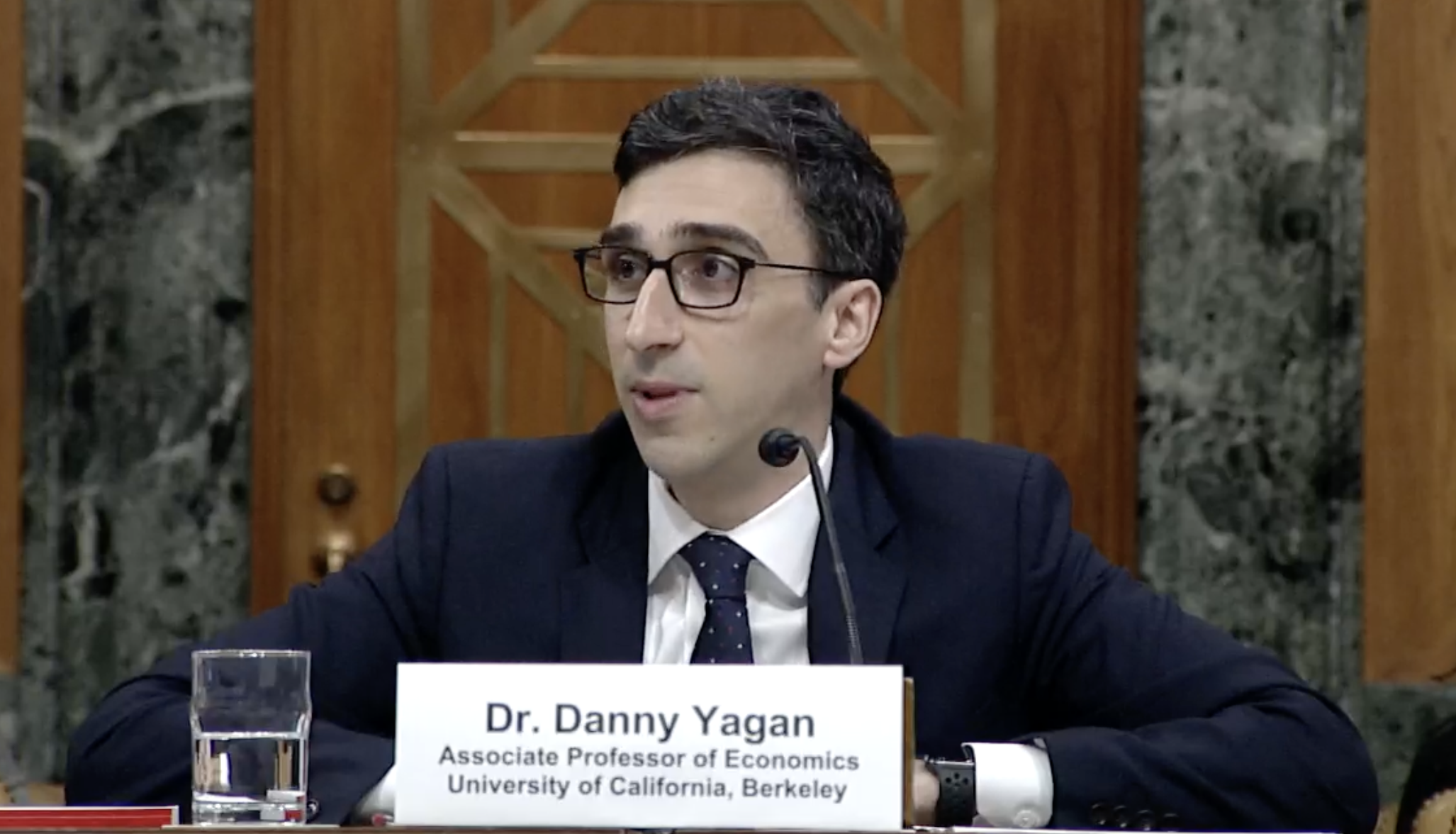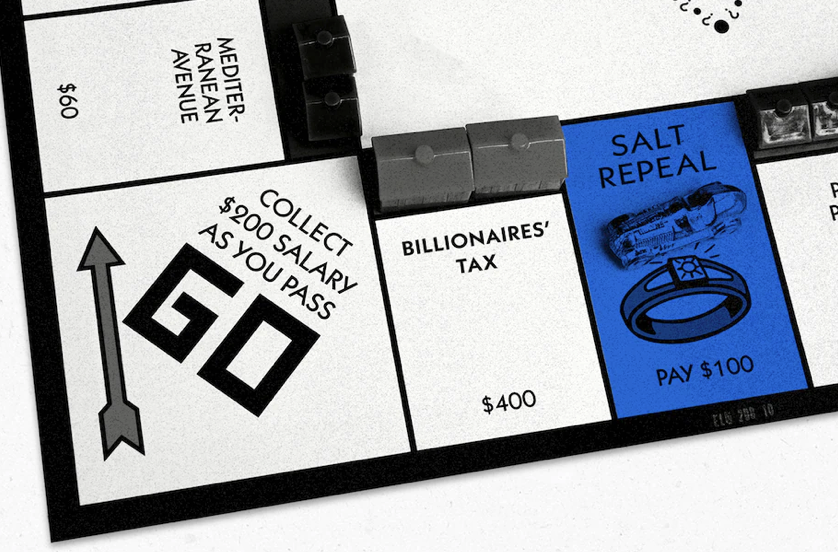In response to wealth taxes on the national level, billionaires often respond to relocating to low-tax countries. In this New York Times opinion piece, Gabe Zucman makes the case for a global minimum tax to address wealth inequality.
Gabe Zucman in Equitable Growth
Despite evidence demonstrating that tax enforcement is a highly cost-effective public investment, Congress’s recent bipartisan budget deal includes a $10 billion cut to the IRS’s tax enforcement budget. Learn more in this Equitable Growth article featuring research from Gabriel Zucman.
Danny Yagan testifies to Senate Budget Committee
On April 18th, Danny Yagan testified to the Senate Budget Committee. Yagan explained 2 simple ways the wealthy evade taxes, and advocated for raising effective tax rates on the rich through a minimum income tax to increase federal revenues. Watch the full hearing here, or read the testimony.
Emmanuel Saez on State Wealth Taxes
In lieu of a federal wealth tax, state lawmakers in California, New York, and Washington have proposed legislation to tax billionaires on a state level. A recent article from the Washington Post explores these efforts, featuring commentary from Emmaneul Saez, who was enlisted by legislators to help draft the new policies. Check out the full article.
Emmanuel Saez and Gabriel Zucman in the Financial Times
How will raising interest rates affect inequality and economic mobility for low-income families? In a new Financial Times analysis, Gillian Tett highlights recent work from Emmanuel Saez and Gabriel Zucman in analyzing how Fed policy may undo some of the gains from the COVID-19 economic recovery. Read the article here.
David Card in Bloomberg Línea
During a recent visit to Brazil, David Card spoke with Bloomberg about the potential for a US recession, anticipating a labor market slowdown as companies start selling fewer products. Read the full piece here.
Why the Inflation Reduction Act is key to strong, broad-based U.S. economic growth
The newly-passed Inflation Reduction Act has the power to combat growing income and wealth and inequality in the United States, explains a new Equitable Growth article. Author David Mitchell underscores how key climate provisions of the act will be paid for by increased taxes on the wealthy, mentioning tax-evasion research from Gabriel Zucman. Read the article here.
Emmanuel Saez & Gabriel Zucman on Realtime Inequality
A New York Times opinion piece by Peter Coy spotlights realtimeinequality.org, an online tool created by Emmanuel Saez and Gabriel Zucman, which shows which income groups benefit from wealth growth in the United States. Based on Saez + Zucman’s work, Coy emphasizes that economic performance evaluations should go further than simple GDP growth. Read the piece here, and check out more press coverage of Realtime Inequality by NPR, VoxEU, and Bloomberg.
Ellora Derenoncourt on Racial Wealth Inequality
Despite progress made since the civil rights movement, efforts toward reducing racial wealth inequality are stalling, highlights NPR Planet Money. The latest edition of the newsletter features new research from affiliate Ellora Derenoncourt and coauthors that constructs the first continuous dataset on wealth inequality between Black and white Americans, dating back to 1860. Read more here.
Emmanuel Saez: California Should Pass a Small Tax on Big Wealth
Emmanuel Saez recently co-authored an op-ed in the LA Times on how the California tax system favors the ultra-rich and the importance of fixing it. He argues that while the “ordinary rich” pays their fair share in income taxes, California’s billionaires escape this by holding on to stock and not taking cash salaries.
Patrick Kennedy and Harrison Wheeler Featured in the New York Times
O-Lab fellows Patrick Kennedy and Harrison Wheeler were featured in a recent New York Times article for their research on opportunity zone investments. Their study showed that a 2017 tax break for investors in economically struggling neighborhoods only increased investment in regions that were already becoming “richer and whiter,” with almost no investment in rural areas at all. Check out the article and read the full paper here.












